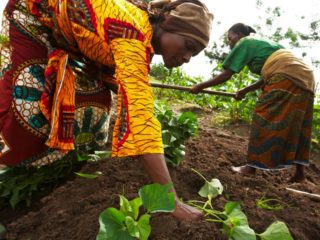Tanzania, Vietnam endorse climate smart agriculture
Tanzania and Vietnam are among
the countries that have committed to work towards climate smart agriculture -
an approach aimed at transforming food systems.
Climate-smart agriculture
involves pursuing sustainable productivity increases while implementing climate
adaptation strategies and reducing greenhouse gas emissions where possible, to
achieve food security in the face of increasing climate change.
The countries shared this mission
at a recent meeting in Rome, a side-event during a session of the UN Food and
Agriculture Organization– FAO’s executive Council.
Tanzania intends to invest more
in research on climate-smart agriculture to inform decision-making and involve
private partners to catalyse additional investment in the sector. For example,
rice-farming techniques that use less water were introduced several years ago
in 5 Tanzanian regions:
These techniques are used now by
around 30% of all rice producers in those areas. The farmers have already seen
their yields increase while using less water resources – which is particularly
important for these drought-prone areas – and are eager to switch to new
varieties of rice seeds.
In Vietnam, about 700,000
hectares of rice and other food crops were heavily damaged by climate-induced
natural disasters in 2016. As a result, rice production fell by 800,000 tonnes,
and about 1.1 million people in affected areas were put at a greater risk of
food insecurity.
To reverse the dire situation,
numerous climate change adaptation and disaster-risk management measures have
been implemented at national, sub-national and local levels. For example, rice
cultivation areas in several Central provinces have been converted to other
crops such as fruit trees and grapes, which require less water and can serve as
an alternative source of income for farmers. When weather permits, the land can
be easily switched back to rice production.
During the FAO-hosted event, the
participants also highlighted the importance of embedding climate-smart
agriculture in national policies and programmes, and promoting climate-smart
practices in the field through trainings and farmer field schools in various
ecological zones. They also stressed the need to provide accurate climate
information to farmers, and investing in evidence-based research on
climate-smart agriculture.
[Source: IPS]




Comments
Post a Comment